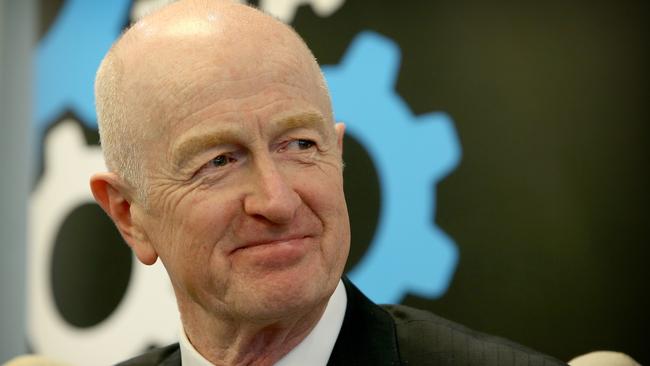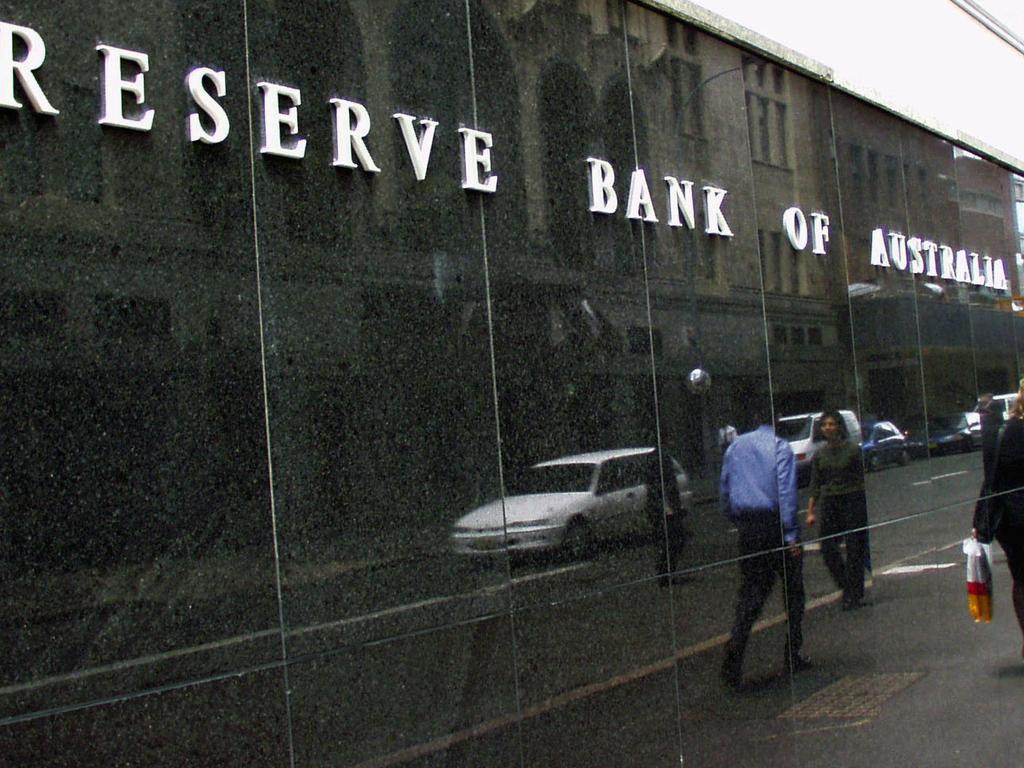Coronavirus: Push to ramp up restart of the economy
Former Reserve Bank governor Glenn Stevens and business chiefs are urging a swift but phased restart to economic activity

Former Reserve Bank governor Glenn Stevens and business chiefs are urging a swift but phased restart to economic activity, to help the nation navigate out of a recession and start repaying swelling government debt.
Speaking at the virtual Macquarie Australia Conference on Tuesday, Mr Stevens warned of the lasting impact from the pandemic-led downturn, which would inflict a bigger blow on Australia than the global financial crisis.
“For Australia the real economy impact is obviously much bigger than the downturn at the end of 2008 was,” he said.
“It’s a health event which has then been manifested through to a huge economic contraction because of the response to the health event.”
Mr Stevens said the government’s borrowing to stimulate the economy through the hibernation period was warranted, but it was based on assumptions for resuming activity and being able to eventually service that debt.
“You could get the initial phase of the recovery happening reasonably smartly if we were allowed to stay at work and stay out of the house,” he added.
“But there will be some durable impact and damage.”
The government has outlined three main COVID-19 stimulus packages amounting to more than $200bn to help businesses and employees survive the fallout.
The RBA in March cut official rates to a new record low of 0.25 per cent and started quantitative easing measures which pump more money into the economy, while it has also boosted funding lines for lenders. The central bank held rates steady at its May meeting on Tuesday.
Treasury analysis shows that social restrictions are a $4bn drain on economic activity for every extra week they remain in place.
Scott Morrison signalled the government would define as early as Friday how the economy will restart in a “COVID safe” way, providing an indicative timetable for that process.
The commissioner of the government’s COVID-19 Coordination Committee, former Fortescue Metals chief executive Nev Power, told businesses and workplaces that it was time to have plans in place for employees returning to work.
That comes as hard-hit pandemic countries, including Italy, have outlined a phased relaxation of shutdown measures for businesses over May and June.
COVID-19 has ripped through many sectors of the domestic economy which have been shutdown since March, while others have been indirectly impacted by plummeting demand.
Toll-road giant Transurban expects a gradual economic recovery and is closely watching unemployment levels.
“Unemployment in the cities is one of the things we’re going to watch and it will mean, until we come out the other side, slower growth,” Transurban CEO Scott Charlton told the Macquarie conference.
“Obviously we still think there is opportunity, although some of it will depend on migration. If governments can spend money on infrastructure then that economic spending will stimulate transport and road traffic. But it depends on how deep the V or the U (shaped) recovery becomes.”
Transurban is in talks with governments to accelerate stimulus projects.
Mirvac CEO Susan Lloyd-Hurwitz predicts a restarting economy will see staff at many companies return to working in offices when life returns to normal, but said the role of retail would be fundamentally changed by the pandemic.
“People really crave the human interaction. The role of the office is not doing work, it is the connection between the humans that are there,” she said.
“Shopping physically is a choice not a necessity and this experience has turbocharged that thought … the role of retail in the urban landscape will be completely different.”
Mr Stevens — also a Macquarie board member — labelled it a “tricky balancing act” for policymakers as they traversed the next steps to manage a restarting of activity.
“What we are doing of course is borrowing a lot of money to do that support, against an assumption that in the future the country and the government has the income to service that obligation and ultimately one day repay it,” he said.
“That’s the right assumption to make, but there will come a moment not far away where we have to do things that allow that income to be earned. We have to be able to reopen the economy subject to managing the health side.”
Mr Stevens said some sectors could resume activity relatively quickly, but there was still uncertainty about the strength of any rebound.
“In some of the most affected sectors, like hospitality … the recovery is probably going to be beginning very soon at an unknown speed. It will depend on how quickly the reopening can happen and how durable it is if we have second waves, third waves (of virus infection) and have to re-tighten again, of course that will set things back.”
The hard-hit shopping centre industry is already taking steps to reopen more stores.
Shopping Centre Council of Australia chairman Peter Allen, who heads the local Westfield operation as Scentre Group CEO, welcomed a call by NSW Premier Gladys Berejiklian for businesses to “have a go” if they were able to safely reopen for trade.
Mr Allen said this approach would provide a boost of confidence for consumers and the retail industry as it balanced health with economic recovery.
“Our industry is already seeing more retailers opening their doors and customers return to centres.”
This week, Kathmandu and Rip Curl stores have reopened in NSW and Queensland on a trial basis, with plans in place to broaden those plans to other states.
Other industries are proceeding with caution given the lingering threat of new COVID-19 infections as winter approaches.
“From the middle of March until the end of April and beyond were perhaps the toughest six weeks in Australia’s economic history,” Ai Group boss Innes Willox said.
“Those who got through this first stage are now looking ahead to what the future looks like and there is increasing concern about what a second wave of economic damage might look like.”
Ai Group represents big manufacturers and industry.
Additional reporting: Ben Wilmot, Damon Kitney




To join the conversation, please log in. Don't have an account? Register
Join the conversation, you are commenting as Logout